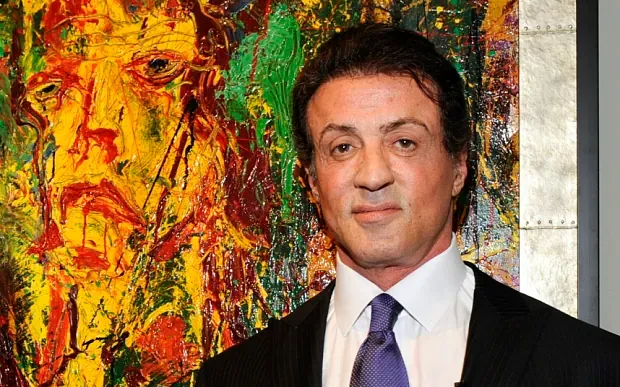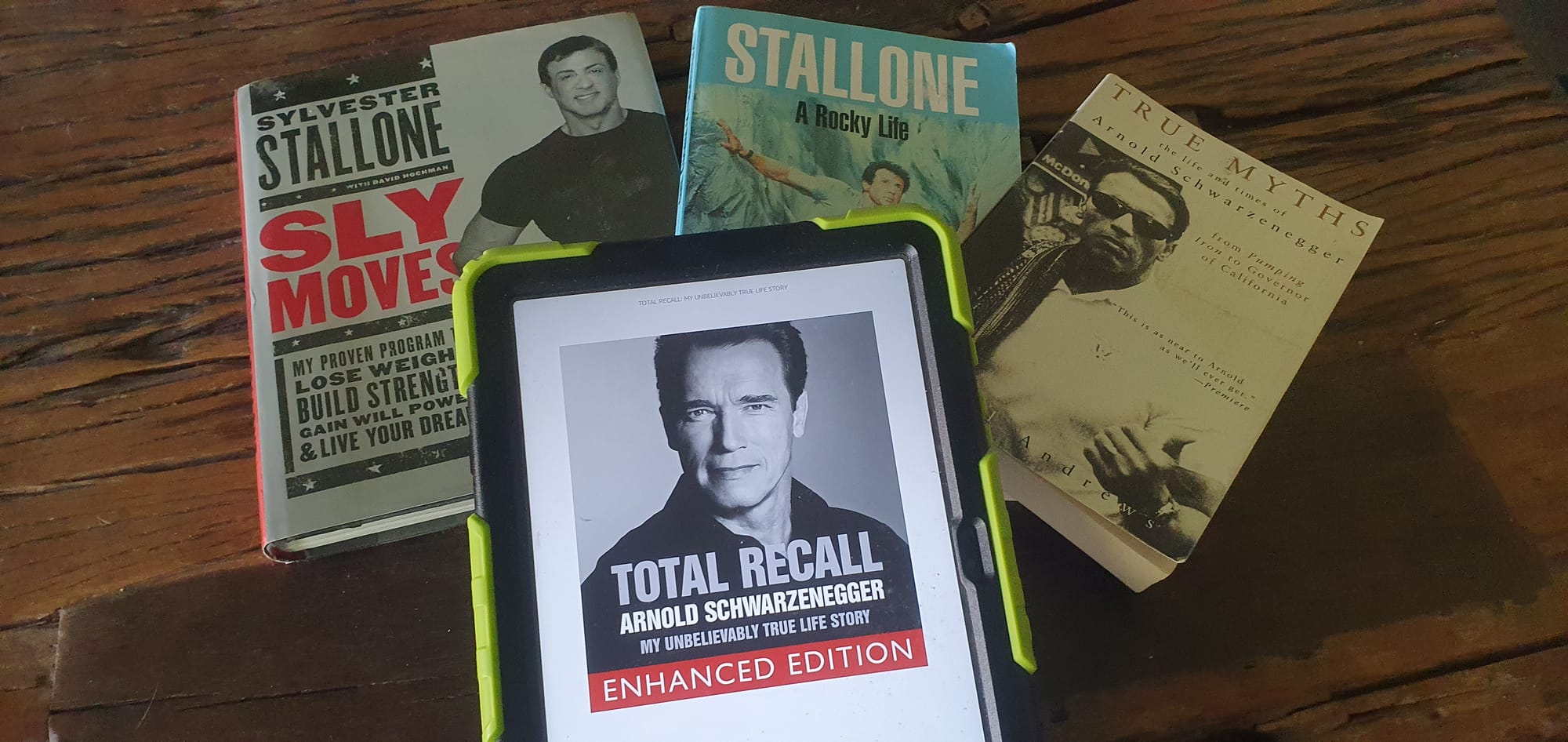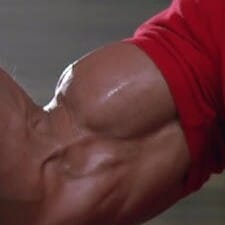Pitfalls for the Slyologist

He was the biggest film star of the late 70s and early 80s. His underdog story gives him an unbreakable emotional bond with his fans even today. He has had incredible longevity – through force of will – in cinema, exhuming the corpses of Rocky and Rambo for new instalments in the mid-noughties, and creating The Expendables franchise.
Which makes it all the more remarkable there is still no comprehensive biography of Sylvester Stallone available.
The best seems to be Stallone: A Rocky Life, by former Los Angeles Daily News critic Frank Sanello. Published in 1998, its account peters out in the mid-90s. There is Marsha Daly's Sylvester Stallone: An Illustrated Life, from 1985, which I've yet to lay hands on. And other than that, a bunch of hack cuttings jobs available on Amazon.
No such problems for the Arnologist. Apart from his own rollicking autobiography Total Recall, there is Lawrence Leamer's sanctioned but hardly obsequious Fantastic: The Life of Arnold Schwarzenegger (2005); former FT film critic Nigel Andrews's incisive True Myths (1996); and from 1991, Wendy Leigh's dirt-digging but intriguing Arnold: An Unauthorised Biography (more on her later).
Why this gaping Stallone-shaped void? It leaves the aspiring chronicler fearing that Sly's inner circle is impossible to penetrate – or that he's been particularly effective at shutting down unauthorised projects with threats of litigation.
But Schwarzenegger is no less policing of his public image. Seven years after sitting for interviews for Leamer's book, he reframed his own narrative with Total Recall – in which he came clean about his affair with his housekeeper Mildred Baena. He was certainly well within his rights to sue Wendy Leigh for implying he was a Nazi sympathiser in the News of the World – but his tactics in trying to prevent the publishing of her subsequent book bordered on sinister (read Leamer, chapter 24, on this score).

The difference is in their personalities: Schwarzenegger, the extrovert, gravitates towards publicity of most kinds (accusations of Nazism apart). The introverted Stallone less so. He invariably wants to write his own story: his autobiography-cum-workout manual Sly Moves (2005) gives us a fly-by account of his career, and hopefully there will be more forthcoming in his imminent followup The Steps. And of course his cinema is effectively a form of self-dramatisation: his alter egos Rocky and Rambo are far more personally invested characters than anything Schwarzenegger ever played.
Still, the empty shelves at the heart of the Sly Studies department are odd. What to do for the budding Slyologist? This is why his rivalry with Arnie is so crucial in understanding his character: it flushed out his insecurities and revealed the real Stallone, for ill and for good. Schwarzenegger himself was adept at putting his finger on psychological weaknesses, and didn't disappoint in this case. "There's no love there," he once said of his opposite number's output. "And people see that. You can fake your way through for a year, but for 10 years, that's hard. I think that's the difference between him and me."
But perhaps Schwarzenegger only saw what he needed to see.

Member discussion